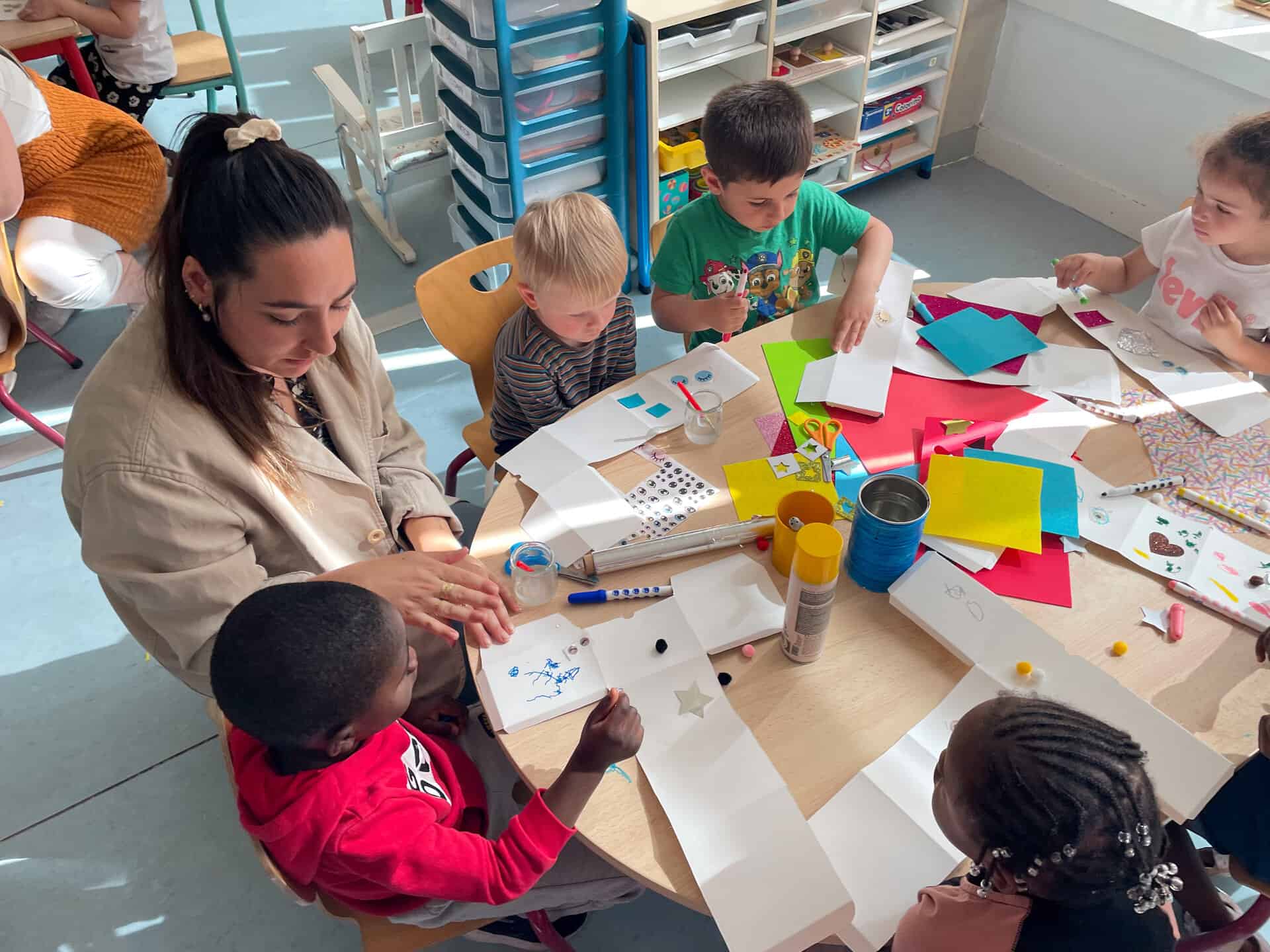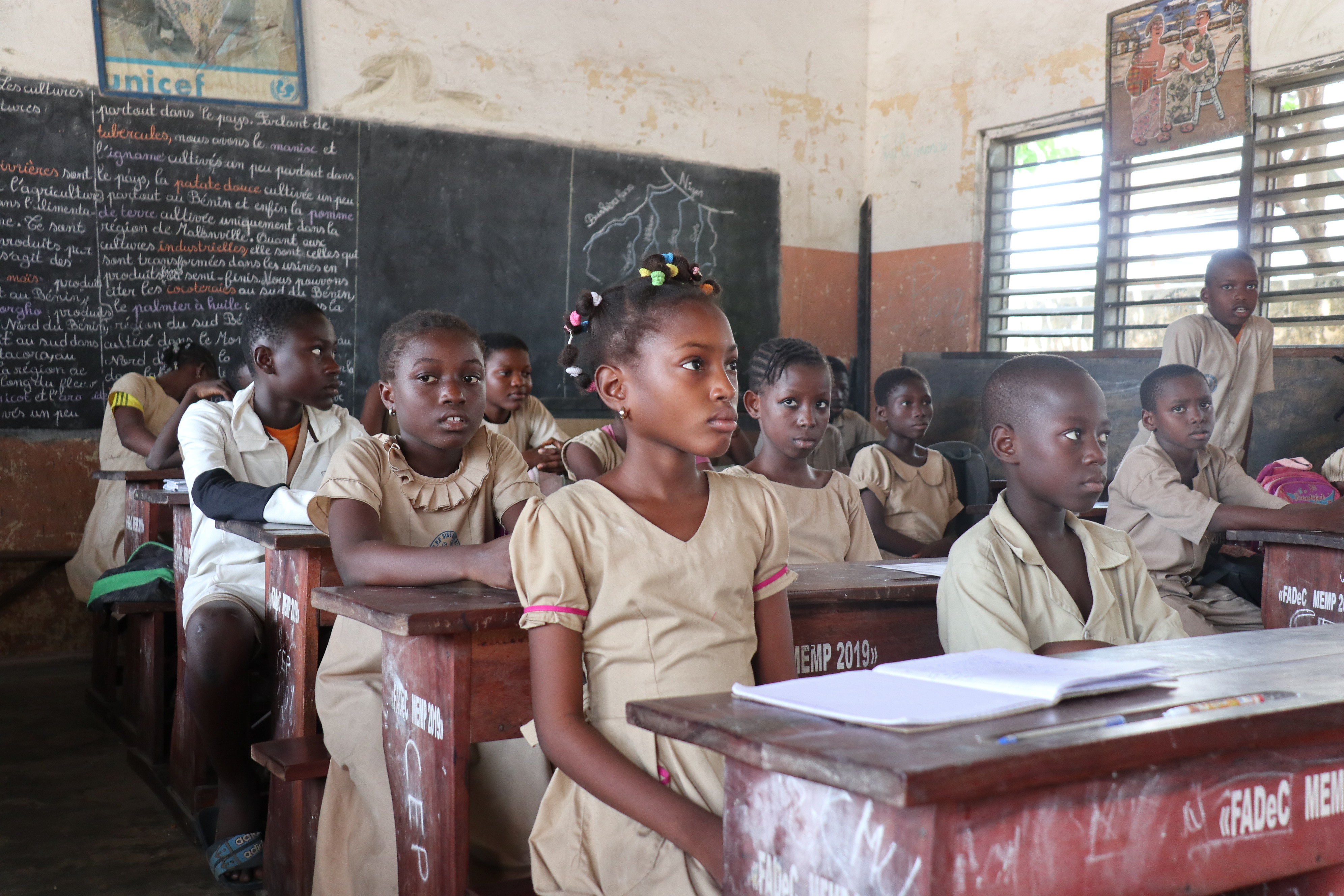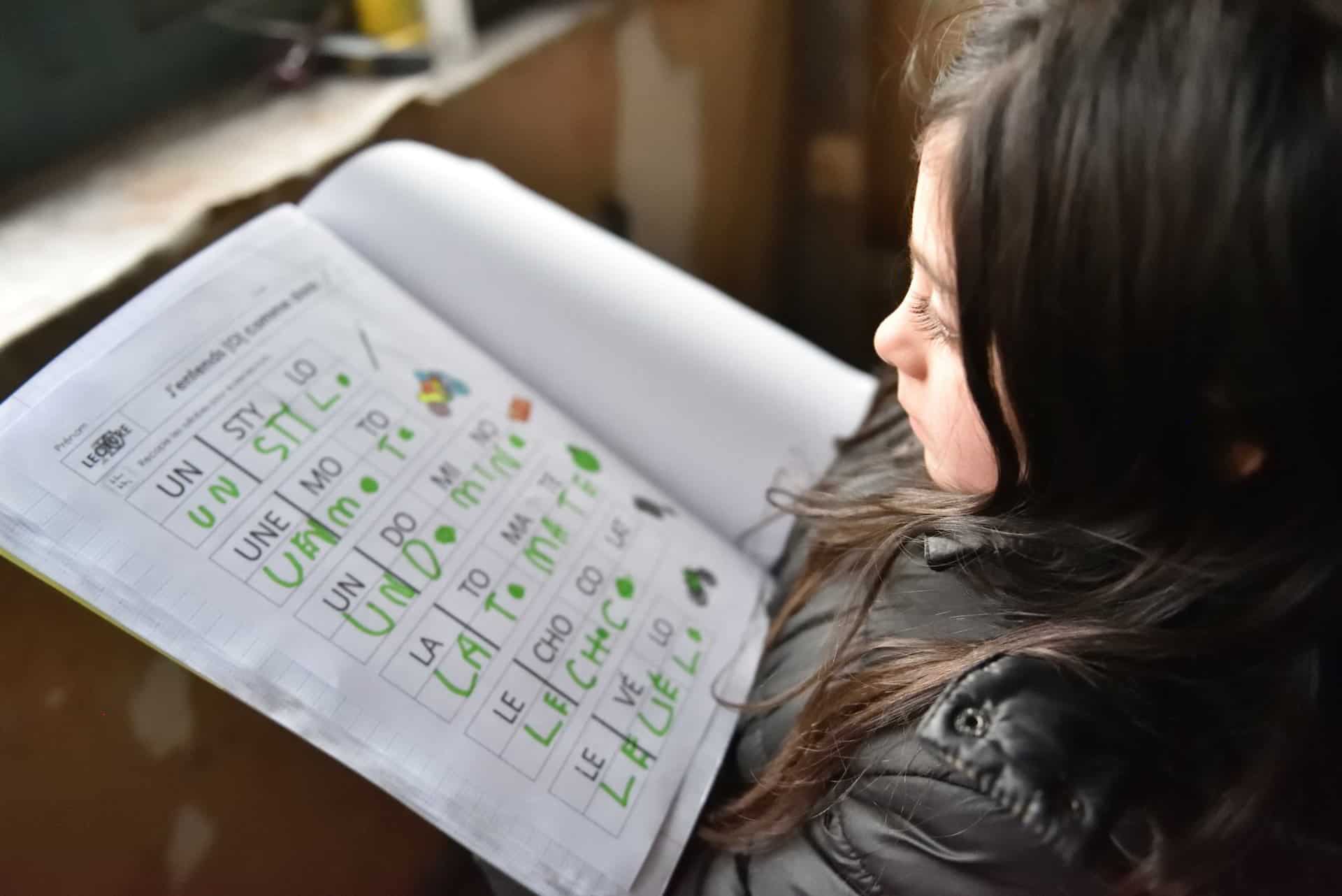©️ Albane Buriel
Action Education ran a number of workshops to encourage reflection and expression among children aged 5 to 11 on the theme of identity, highlighting the importance of empowerment and empathy in their development.
Over a period of several months, we met with a wide range of players in the Val-de-Marne, from associations, the national education system and public institutions. These numerous exchanges gave us an insight into the initiatives and actions being taken, as well as the obstacles to school enrolment and retention for children and young people living in precarious housing conditions in the département. An exploratory study (Educational issues and the dynamics of the players involved in the schooling of children and young people living in precarious housing conditions) was carried out by Action Education's Territoire Europe team. A exploratory study aimed at gaining a better understanding of the educational issues facing children living in precarious housing in the Val-de-Marne, was also carried out by the Territoire Europe d'Action Education team.
Over and above these exchanges with the many professionals involved, it was essential in this shared diagnosis to be able to hear directly from these children and their families. The school approach enabled us to observe the parents' and children's relationship with school, as well as the general inclusion of these children in school, in a class group and in the eyes of the teachers.
We then decided to run a joint project with Rosalind Franklin primary school in Ivry-sur-Seine, which is concerned with the problems associated with precarious housing. The main aim of the project is to improve understanding of the children and families who are furthest from school, through the children's perceptions of their environment.
An art project called "la boîte à voyager" (the travelling box) was carried out with a class of nursery school children to encourage them to get to know each other through an artefact specific to the school and the family. The children brought an object from the classroom to their home, then an object from the family to the classroom in their travelling boxes. Philosophy and art workshops were also held with other pupils from the school.
Expressing yourself through philosophy
Children as young as 4 ask themselves existential questions about love, freedom, poverty, death and so on. Giving these children a space and a time to discuss and understand the world around them through their own questions is also a way of empowering them, enabling them to think for themselves, listen to the thoughts of others and thus develop tolerance and empathy.
We have used Chiara Pastorini's holistic method to develop philo-art workshops that combine artistic practice with a debate on ideas, placing the body at the heart of the thought process. Reflection can then nourish artistic creation, just as art can nourish thought. We ran five workshops with children aged 5 to 11 on the theme of identity.
What am I?
It's a question that every child asks, and a question that evolves over time. A CE1 pupil speaks spontaneously: "But who am I really?". From the very young, who were more interested in the physical aspects, to the older children, who were more interested in the human qualities, the children from Rosalind Franklin School tried to weave together their thoughts and envisage the various aspects of this complexity through the different activities offered in the workshop.
Faced with the image of a child looking in the mirror, we understand the extent to which thephysical appearance plays an important role in the development of these children's identities from elementary school onwards...
"He's afraid of being judged by others, he has to be perfect" (CM2 pupil)
"He doesn't like his body" (CM1 pupil)
"He doesn't seem to accept himself" (CM2 pupil)
"When we look at ourselves in the mirror we don't see ourselves in the same way. In the mirror we see how we look and when we look at ourselves we see our mental state, our behaviour and we can judge ourselves, whereas when we look in the mirror we judge ourselves by our appearance first" (CM1 pupil).
The image of children wearing masks enabled us to discuss managing emotionscontrol over them and over what we show others:
"I think that even if you wear a mask you don't change, if there are people who are sad and wear a mask they won't be happy in no time, they'll stay sad".
"When you're at school sometimes you can be sad but you don't show it, you can wear a mask".
"For example, when I get angry I put on my mask to hold it in and when I'm at home I let off steam" (CM1 pupil)
But at school and at home, are you the same person?
"So it's not the same because you sit there and you don't want to talk, you're shy, and at home you're not shy, you can get up and talk".
"When we go home we find everything we want and we don't have the same at school. "
The way they look at their bodies, their passions, their personality traits and behaviour, their different social environments - these are all elements that the students use to describe themselves, to question who they are and the image they project to others.
Drawing as a means of self-expression

If you were an animal, what would you be?
If you were a place, what place would you be?
If you were....
Dream holidays, family memories, a diversion through origins - these are the drawings that respond to the notion of identity for the children of the Rosalind Franklin School.
"I'm an emotional lift" (CM1 pupil)
"I'd define myself as a lioness because a lioness defends her cubs and what she has. Sometimes she gets angry very quickly, like me. Sometimes she's gentle with people, and sometimes I'm gentle too, sometimes. And sometimes I can be wild, and sometimes I can be wild when I'm very upset" (CM1 pupil)






